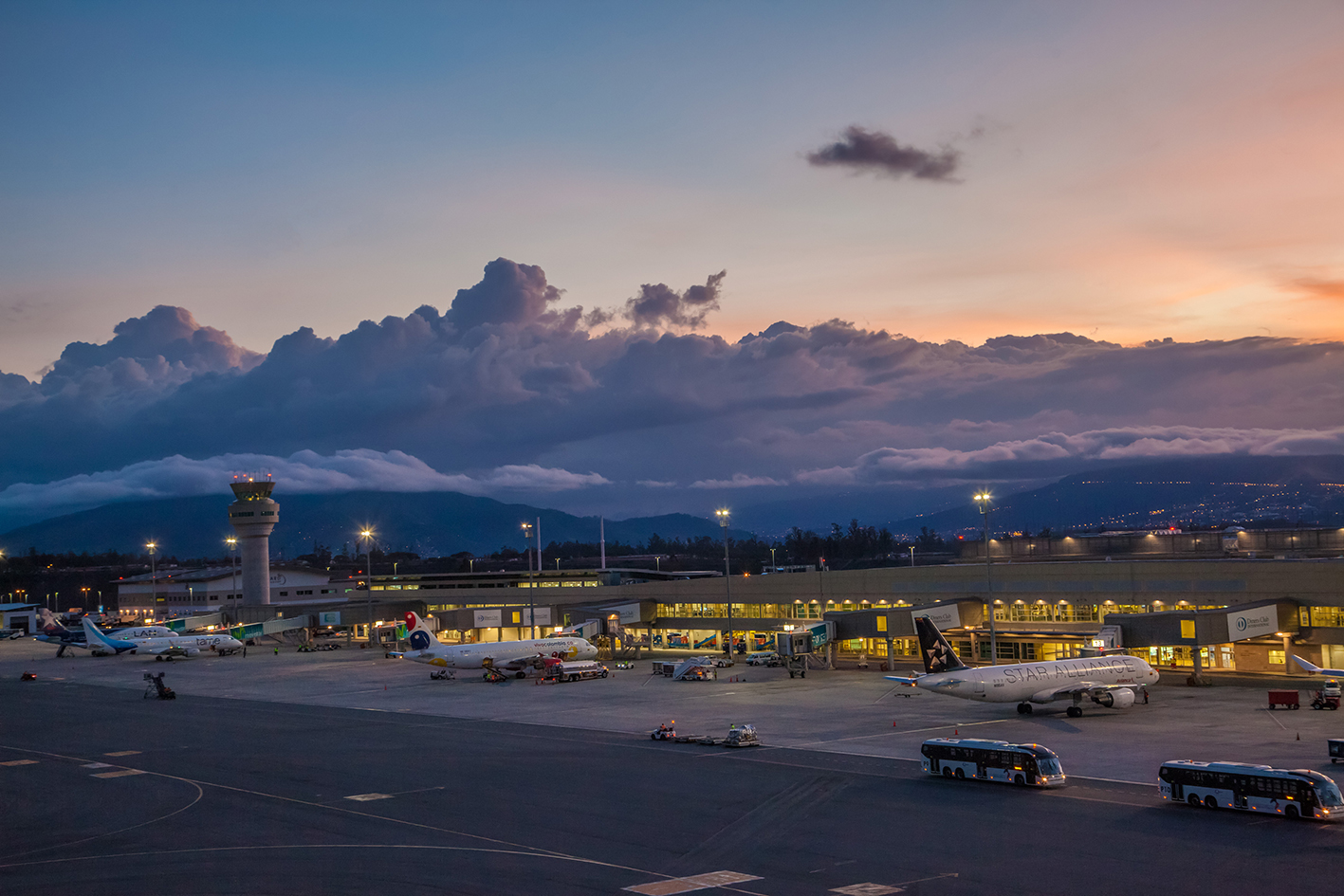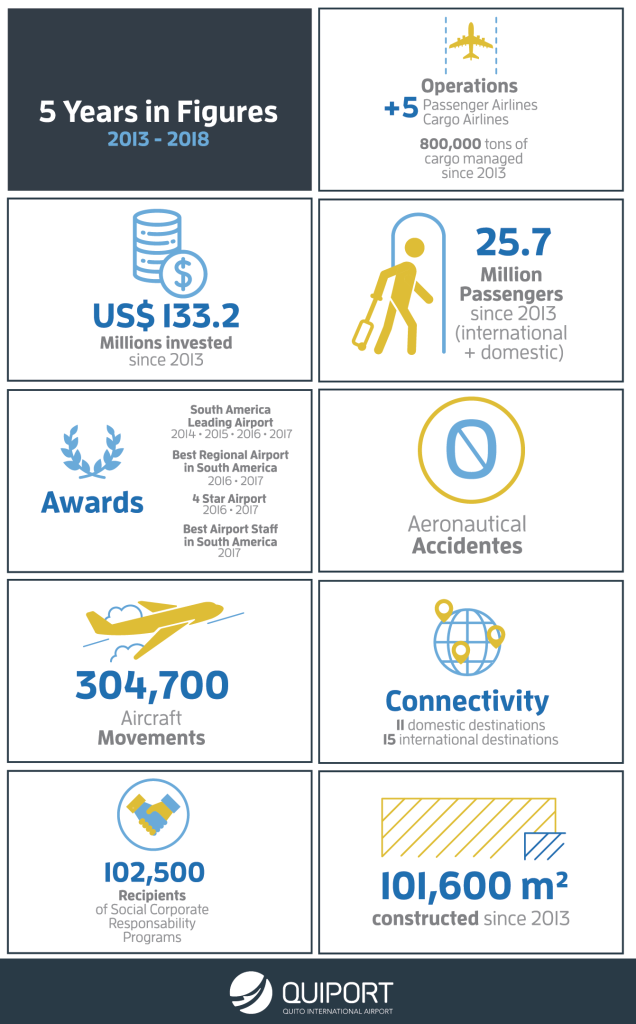THE MARISCAL SUCRE INTERNATIONAL AIRPORT

- Investments of more than US$ 130 million since its inauguration, multiple local and international recognitions, increased passenger and cargo capacity, all this added to the scope of its Social Responsibility programs are some of the achievements that summarize the impact of the Quito airport during its five years of existence.
Five years have elapsed since February 20, 2013 – a date that marked a milestone in air transportation of Quito upon the transfer of operations from the Mariscal Sucre International Airport to Tababela, northeast of Quito. According to information provided by Corporación Quiport S.A. (the concessionaire of this infrastructure) the concessionaire and its strategic partners have invested US$ 133.2 million in expansions, fittings, and improvements in the airport during its five years of operation.

In respect of connectivity, Quiport explains that 25.7 million passengers have transited through the Mariscal Sucre Airport since 2013 through 11 domestic destinations and 15 international destinations connected with Quito. Likewise, four new airlines have been added to the routes serving the capital city (Aeroméxico, JetBlue, Wingo and Air Europa). Furthermore, weekly frequencies to existing destinations such as Amsterdam, Bogota, Panama and Mexico City were added.
Such increased connectivity has positive influence on the generation of more and better opportunities for the country. For instance, IATA’s connectivity index grew from 4.75% in 2010 to 10.24% in 2016, resulting in US$ 356.75 million added to the country’s GDP.
“We who belong to Quiport and to the Quito International Airport are proud for the accomplishments obtained during five years of operation thanks to our profound knowledge of the activity and much efforts and great passion for our work, being aware that the airport offers the first and the last impression of the city and the country” said Andrew O’Brian, President and Director General of Quiport.
Likewise, the city’s export capacity has been strengthened during the five years of operation in Tababela. Approximately 800 tons of cargo have been handled, representing an important contribution to the country’s international trade. Since 2014 until December 2017, flower exports cargo has increased by 23.3%. During the 2018 Valentine season, more than 16,000 tons of flowers were exported to the world from the renewed cargo platform that allows simultaneous parking of 6 airplanes of great capacity, some of them regarded as the largest in the world.
Excellence passenger experience is one of the pillars of Quiport’s activity. More first-class services have been implemented during the past five years, such as the area for children’s games at the terminal, automatic boarding doors, self-check-in and baggage self-tagging kiosks, free WiFi, and an ample commercial supply of prestigious brands that are leaders in each segment.
Concerning tourism, the total expenditures generated by visitors who came to Ecuador through the Quito airport amounted to US$ 817 million nationwide during 2016. And concerning employment generation, about 38,270 jobs were created in 2016 in the country.
Furthermore, Quiport’s social and environmental approach has permitted substantial development of the airport’s neighboring communities. More than 100,000 persons have benefitted from the social programs, and operations at the airport are carried out according to strict environmental regulations that led us to obtain important ratings worldwide on reduction of the carbon footprint.
Those figures demonstrate our contribution to the development of the country, the city and the areas surrounding the airport which, added to excellent ratings from passengers and users in respect of the airport’s services, have resulted in that the aeronautical and tourism industry has recognized it as South America’s Leading Airport during four consecutive years.
“The success of the Mariscal Sure Airport operations is due to the work performed jointly by more than 120 entities that operate in it, employing approximately 8,000 persons. Nothing like this could have been reached without the work performed by each one of them,” the official added.

